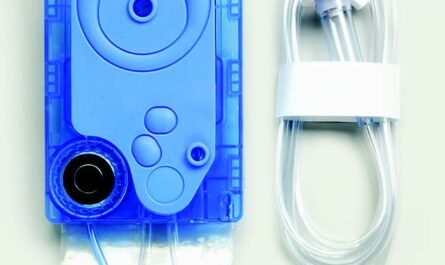
What are Decongestants?
Decongestants are medications that are used to relieve nasal congestion caused by illnesses such as common cold, sinusitis and allergies. They work by constricting blood vessels in the nasal passages, thus reducing swelling and mucus production. This allows for easier breathing through the nose.
Types of Decongestants
There are two main types of decongestants – oral and topical.
Oral Decongestants
Oral decongestants come in tablet, capsule or liquid form. They are taken by mouth and work systemically throughout the body. Some commonly used oral decongestants include:
– Pseudoephedrine: It is one of the most effective and widely used oral decongestants. It works by constricting blood vessels in the nasal passages.
– Phenylephrine: It has similar mechanism of action as pseudoephedrine but is less potent. It is preferred for those who cannot take pseudoephedrine.
– Oxymetazoline: It is available only as a nasal spray and not in oral form due to its strong decongestant effects.
Topical Decongestants
Topical decongestants are available as nasal sprays or drops. They work locally in the nasal passages and do not circulate through the entire body. Common topical decongestants include:
– Oxymetazoline: As mentioned earlier, it is a very strong decongestant available only as a nasal spray in over-the-counter products.
– Phenylephrine: It is a mild to moderate decongestant available in both nasal sprays and eye drops.
– Xylometazoline: It is similar in strength to oxymetazoline but has a slightly longer duration of action of up to 12 hours.
Duration and Effectiveness of Decongestants
Short-acting decongestants like pseudoephedrine or phenylephrine provide relief for 4-6 hours whereas long-acting decongestants such as oxymetazoline can be effective for up to 12 hours.
In general, topical decongestant sprays work faster than oral pills but have a shorter duration of action. Oral decongestants work throughout the body but their effects may take 30-60 minutes to commence.
Proper use of both short and long-acting decongestants as per guidelines provides effective relief from nasal congestion symptoms. Use of topical sprays for more than 3 days can rebound nasal congestion on withdrawal. Oral forms are safer for use beyond 3 days duration.
Safety of Decongestants
Decongestants are considered relatively safe when used as directed for short periods of time. However, certain precautions need to be followed:
– Pregnant/breastfeeding women should avoid oral forms and consult a doctor before using topical decongestant sprays/drops.
– Individuals with conditions like hypertension, diabetes, thyroid problems, cardiovascular diseases should only use decongestants under medical supervision.
– Interactions may occur when taken with other medications like antidepressants, sedatives. Inform the healthcare provider about all medicines being used.
– Rebound nasal congestion is a risk with overuse of topical decongestant sprays beyond 3 days. It is advisable to shift to oral forms thereafter.
– Elderly people are at higher risk of side effects from oral forms like increased heart rate and blood pressure. Lowest effective doses should be used.
Hence, while decongestants provide fast, temporary relief from nasal congestion when used judiciously, it is important to follow dosage guidelines, avoid exceeding recommended durations of use and consult a medical practitioner in case of any underlying medical conditions. This ensures safe and effective use.
*Note:
- Source: Coherent Market Insights, Public sources, Desk research
- We have leveraged AI tools to mine information and compile it


